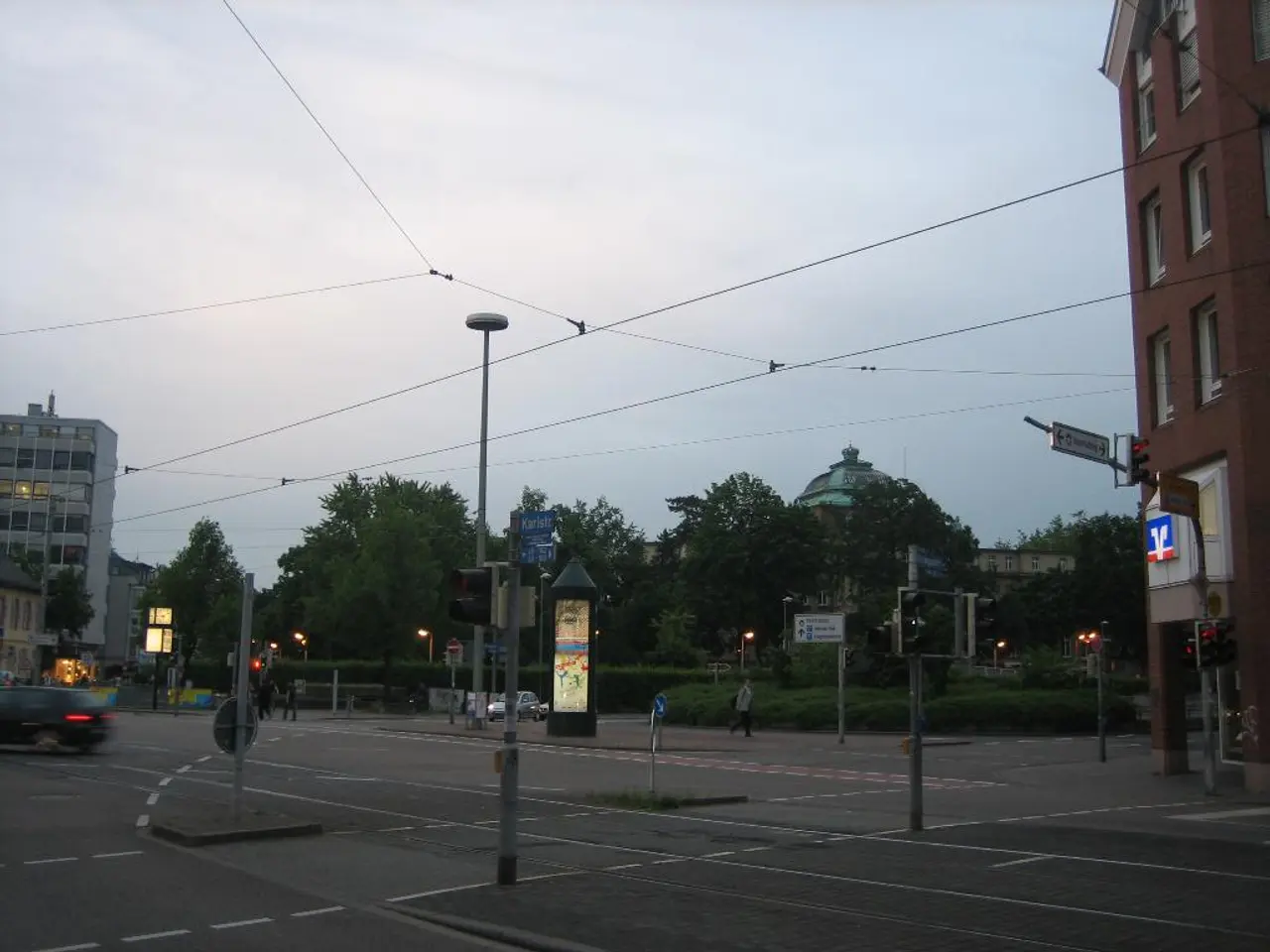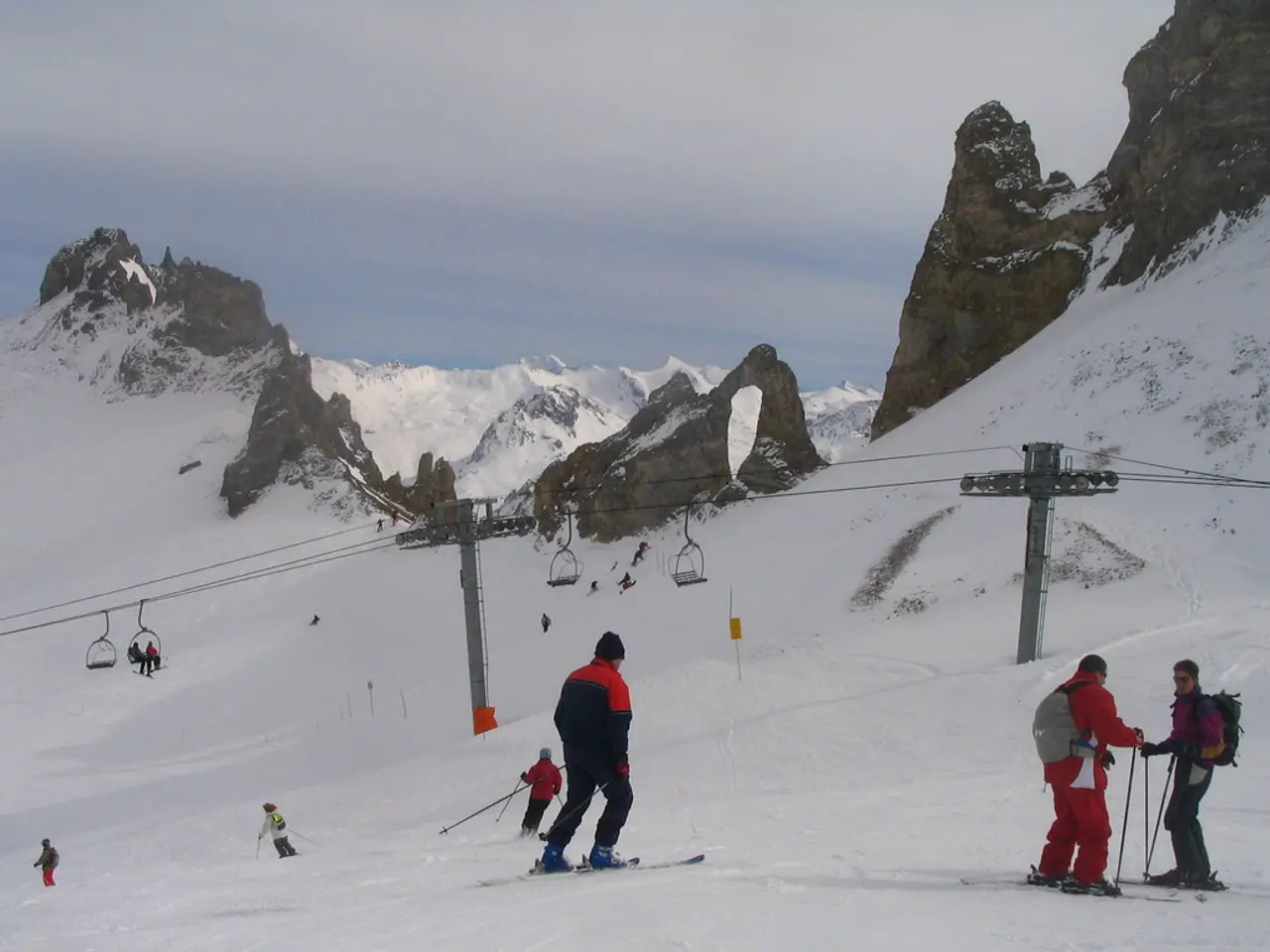Border Controls Remain in Effect between Poland and Germany until September 5th - Germany-Poland border controls extended until 5 September
Poland has announced the temporary reinstatement of border controls with Germany, effective from July 7, 2025. The move is primarily aimed at addressing concerns over uncontrolled and irregular migration flows across these borders [1][2][4].
The decision comes in response to Germany's tougher migration policies under Chancellor Friedrich Merz, who has increased police presence at the German-Polish border and indicated some asylum seekers will be turned away from Germany. Polish Prime Minister Donald Tusk stated that Germany is effectively pushing migration challenges onto Polish territory—a problem Poland refuses to solve for Germany [1].
Tusk stressed that Poland's patience was running out and that the border controls are irrevocable regardless of diplomatic tensions [1]. He linked the potential end of these measures to decisions made by the German government.
The controls will be implemented at about 50 crossing points, including the A12 near Swiecko, A4 at Ludwigsdorf-Jedrzychowice, and A6 at Pomellen-Kolbaskowo border crossings. Pedestrians will also be controlled at the beach promenade in Swinemünde (Swinoujście) and the city bridge in Frankfurt (Oder) [1].
Both countries maintain close cooperation to manage these temporary controls while addressing the shared challenge of migration along their borders [1][2][3]. The controls are planned to be implemented in a manner that causes minimal disruption for Polish citizens, and the Polish and German governments are coordinating closely to keep the effect on cross-border travel low [1][3].
However, because the borders are part of the Schengen visa-free travel zone, the temporary reintroduction of checks *does* affect the usual free movement. Travelers will experience identity and document checks at these crossing points, which could slow cross-border traffic and commuting. Both governments emphasize these controls are temporary and limited in time, designed to balance security concerns with maintaining as much normal travel as possible [3].
The controls with Lithuania will also be implemented, but no specific details have been provided yet. It's worth noting that Germany has been conducting random checks at the Polish border since October 2023, and these border controls were initiated in response to German controls on their shared border [1].
References: [1] BBC News (2025). Poland reinstates border controls with Germany and Lithuania. [online] Available at: https://www.bbc.com/news/world-europe-59083388 [Accessed 7 July 2025]. [2] Deutsche Welle (2025). Poland to reintroduce border controls with Germany. [online] Available at: https://www.dw.com/en/poland-to-reintroduce-border-controls-with-germany/a-59083394 [Accessed 7 July 2025]. [3] The Guardian (2025). Poland reinstates border controls with Germany and Lithuania. [online] Available at: https://www.theguardian.com/world/2025/jul/07/poland-reinstates-border-controls-with-germany-and-lithuania [Accessed 7 July 2025]. [4] The New York Times (2025). Poland to Reinstate Border Controls with Germany. [online] Available at: https://www.nytimes.com/2025/07/07/world/europe/poland-germany-border-controls.html [Accessed 7 July 2025].
- In response to the hardened migration policies enacted by Germany, coinciding with increased border security and denials of asylum for some seekers, Poland has implemented employment policies that prioritize its own citizens in border control roles, ensuring a stronger protective force against migration flows from war-and-conflicts and policy changes that affect general-news.
- The prolonged political tensions caused by these migration challenges, as outlined in the community policy between Poland and Germany, exacerbate the need for close collaboration to handle the shared challenge of migration along their borders, while minimizing disruption for Polish citizens and maintaining the usual free movement within the Schengen visa-free travel zone, as guided by the broader politics of the region.







